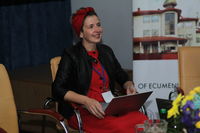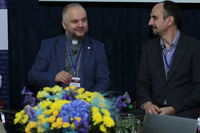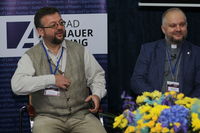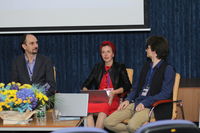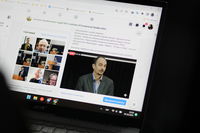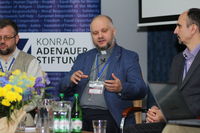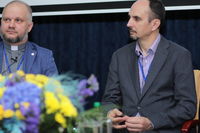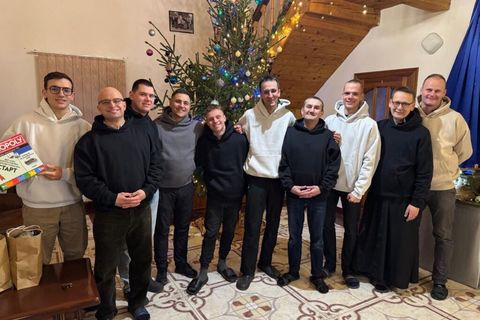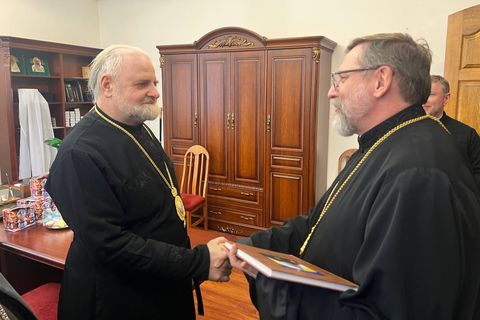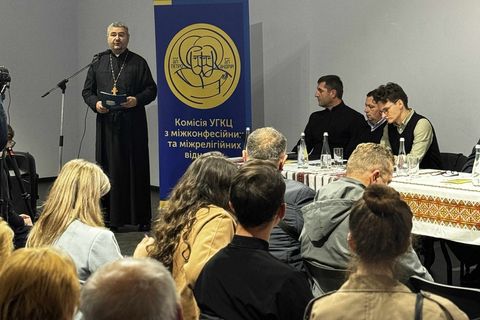“Prayer of a Warring People”: representatives of different churches discussed the role of prayer in times of war
On Thursday, October 5, during the Ecumenical Social Week in Lviv, there was a discussion about the power of prayer in a nation facing war. The participants were seeking answers to the following questions: what is prayer, its effect, and, ultimately, how to pray during the war, and why to pray this way?
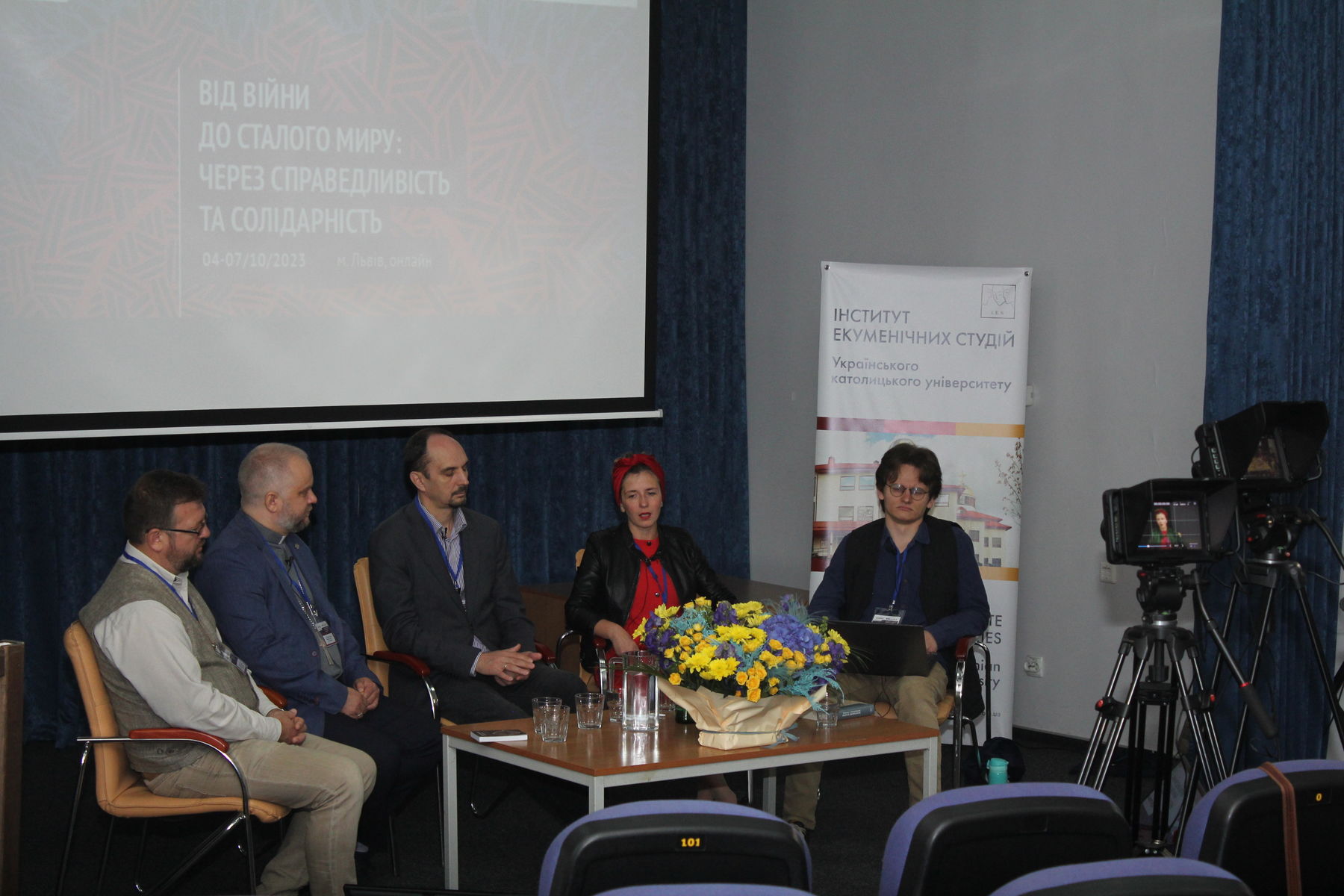
Yulia Vintoniv, Ph. D. in Theology, lecturer at the Department of Pastoral Theology at UCU, shared her first thoughts: “The so-called icon frame of unanswered prayers… What to do with it? What to do with the prayers offered in Bucha, the women raped, the children killed, the soldiers shot?” She then suggested to view it from the perspective of Jesus’ prayer in the Garden of Gethsemane, calling it God’s unanswered prayer. “What is fascinating is that some biblical scholars say that when the angel appeared to comfort Christ, literally at that moment, Christ received the grace that released Him from suffering. Another thing is that this ‘comfort’ in Greek is rather support, empathy, and sympathy,” she noted.
Oleksandr Heichenko, a theologian and rector of the Odesa Theological Seminary of Evangelical Christians-Baptists, also shared his thoughts on the prayer of the warring people: “When I was preparing for this meeting, I asked myself the following question: how has the prayer of Evangelical Christians-Baptists changed during these months [of the great war]. It seems that changes have occurred in at least three aspects.” These three facets are: cause of prayer, intensity of prayers, and understanding of God.
Pavlo Schwartz, Bishop of the German Evangelical Lutheran Church of Ukraine, shared his thoughts during the roundtable.
“When discussing prayer, we also need to talk about faith. Because, in fact, prayer can be performed without faith. But faith makes this prayer meaningful or makes it possible to understand what prayer is. Faith makes it possible to understand that prayer is a conversation with God. If there is no faith, then there is a great risk that prayer is just a kind of a charm,” said Pavlo Schwartz.
At the same time, there is always a sense that injustice is unfolding somewhere in church prayer. This opinion was shared at the roundtable by Fr. Vasyl Rudeiko, presbyter of the UGCC and associate professor of liturgical studies at the Ukrainian Catholic University.
“Our specific example illustrates things we are discussing today. Somewhere, there is absolutely senseless, groundless aggression. People are dying. We have no answer to the question of why they are dying. I mean, we have some answers. But either way, any aggression is senseless. We usually talk about it after the aggression has already taken place. The church has never been tempted to think that it is possible to build some just peace here. A just peace cannot be built in this world. We read the Holy Scriptures, we know that the moment people are tempted to build a just peace, it falls apart,” he said.
You can watch the entire discussion and read all the statements of the roundtable participants on the YouTube channel of the Institute of Ecumenical Studies.
The UGCC Department for Informationbased on the materials of the Institute of Ecumenical Studies of UCU
